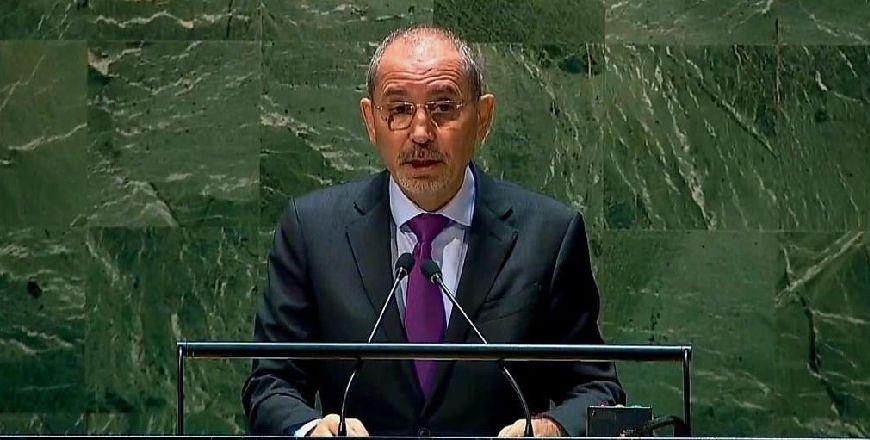You are here
Use Iran deal to prevent nuclear weapons free-for-all — treaty body
By Reuters - Aug 18,2015 - Last updated at Aug 18,2015
VIENNA — The head of the body trying to secure ratification of a global ban on nuclear testing urged world leaders on Monday to use the momentum of an atomic deal with Iran to prevent a slide towards a nuclear weapons free-for-all.
More than 160 countries have ratified the Comprehensive Nuclear Test Ban Treaty (CTBT) since it was finished in 1996. But since then, India, Pakistan and North Korea have all conducted nuclear tests, and are among eight countries including the United States and China blocking its entry into force.
Lassina Zerbo said the near two-year diplomatic marathon that agreed curbs on Iran's nuclear programme, featuring all five of the UN Security Council's veto-wielding nuclear powers, showed what could be done with enough effort.
"I think it's about time that they used a similar model of discussion like what happened in the Iran deal to reflect on the future of the CTBT — if any," said Zerbo, whose CTBT Organisation is holding a conference next month to try to encourage ratification.
In an interview with Reuters, the trained scientist from Burkina Faso said the frustration of many non-nuclear weapons states had grown since a conference on boosting compliance with the landmark 1970 nuclear Non-Proliferation Treaty (NPT) failed to produce a joint document in May.
"[If] after the NPT issue... we're not helping the CTBT... we might go back to a system where there's no framework for arms control and non-proliferation and disarmament. And that's a risk."
US President Barack Obama, who came to office promising to work to rid the world of nuclear weapons, has said he wants to push for ratification of the CTBT, but has not managed to get sufficient support among US lawmakers.
Meanwhile, the United States and Russia, which together hold more than 90 per cent of the world's nuclear arsenal, have produced no plan yet for a successor to their 2009 disarmament treaty, which expires in three years' time.
The CTBT's global tracking network was the first to detect North Korea's latest nuclear test in 2013, and ratification would give its inspectors access to countries for verification.
Iran is another country that has failed to ratify the CTBT, along with its regional rival Israel — widely presumed to have an undeclared nuclear arsenal — and Egypt, which Western diplomats accused of scuppering the NPT conference with attempts to put the spotlight on Israel.
But there are other obstacles facing the CTBT conference.
Some countries are lobbying to close what they say is a loophole, arguing that, by allowing certain non-nuclear explosions, the pact lets countries improve their atomic weapons technology.
The five official nuclear weapons states — the United States, China, Russia, Britain and France — say they need so-called subcritical tests, in which no fissile material is used, to maintain and ensure the safety of their atomic arsenals.
Related Articles
Iran on Monday demanded that countries possessing nuclear weapons scrap any plans to modernise or extend the life of their atomic arsenals, while branding Israel a threat to the region due to its presumed nuclear stockpile.
AMMAN — Deputy Prime Minister and Foreign Minister Ayman Safadi on Monday participated in the Tenth Review Conference of the Parties to the
AMMAN — Officials and representatives of international organisations on Wednesday discussed measures to reduce the use of nuclear weapons, a
















